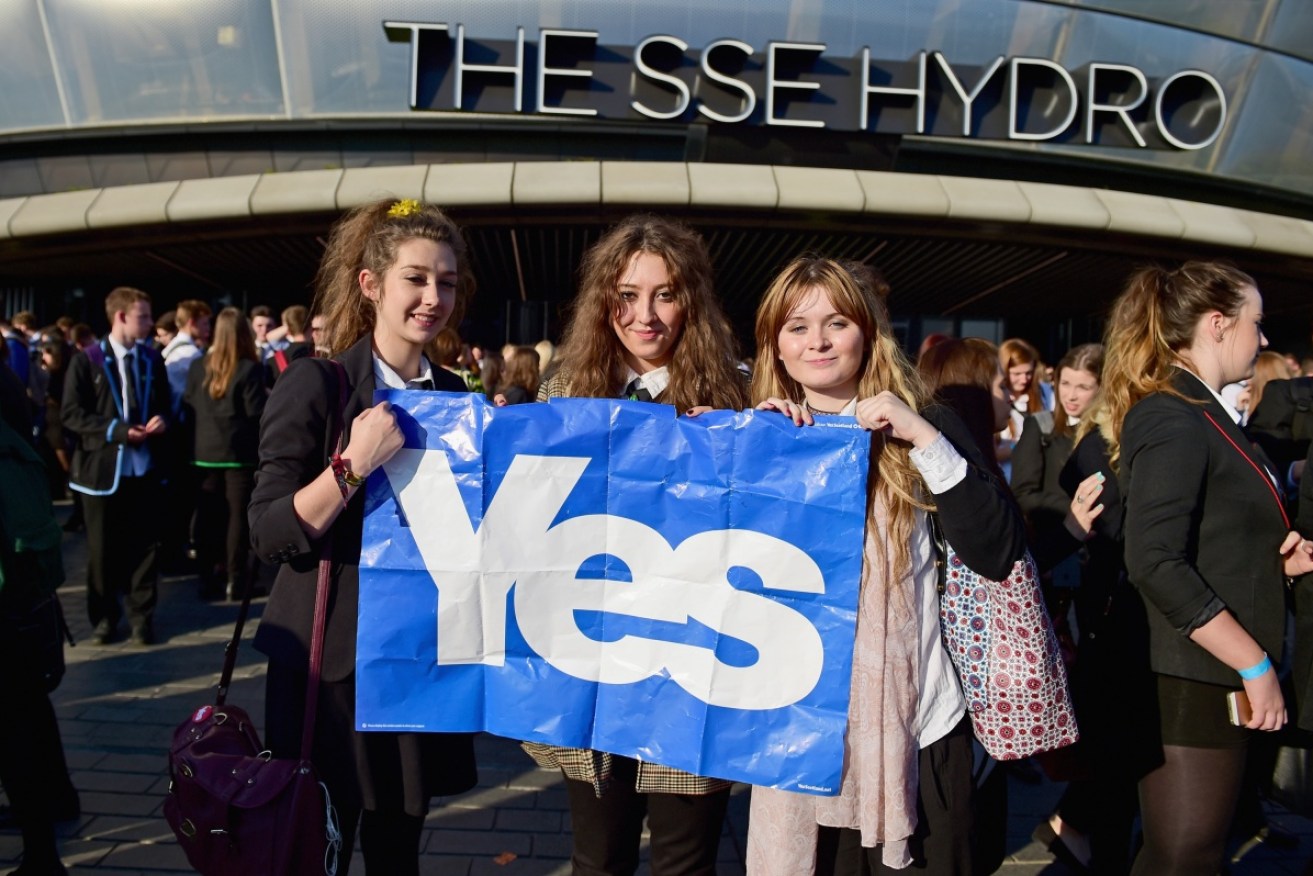Will, Kate and babies: a republican’s lament


Here we go again, another royal baby is on the way.
Cue trumpets and saturation media coverage of the Duchess of Cambridge’s bump, the cut and style of the fabric covering her bump and the pressure on Prince Harry to settle down (preferably with just the one woman) and get procreating too.
Don’t get me wrong. I love babies. All babies. I have one about the same age as Prince George. They even look similar – apart from the absence of jam in his hair.
• It’s official! Princess Kate is pregnant again
• PM to Scots: Don’t leave us!
• Abbott comments anger Scots
William and Kate are quite lovely too. But liking pleasant people who occasionally wear crowns and robes doesn’t mean I want them associated with my constitution.
By default, Australia’s push to become a republic gets caught up in this flag-waving, baby-gazing spectacle.
The simple question is – in modern, multicultural Australia, should we have an Australian or a foreign head of state?
For me it’s like being asked: “Would you prefer a glass of Penfolds Bin 389 or a glass of flat warm beer?”

Kate, Will and baby George soon after the youngster’s birth in 2013. Photo: Getty Images
William and Kate aren’t relevant to the future of Australian society no matter how warm and fuzzy we may feel about the fourth in line to the throne.
Becoming a republic has nothing to do with disrespecting the Queen or our past. It’s about diversity. It’s about recognising the rightful place of indigenous Australians in our history. It’s about our evolving relationships with Asia and the Pacific.
It’s about us.
It is important for us as a nation to become fully and unambiguously independent.
How can unifying and strengthening our sense of identity be such a bad thing?
Is it really that radical to ask for a head of state who can speak, not just for us, but as one of us, who can lead important national conversations – and with an accent from our shores?
A woman or man selected on merit. Not birthright.
Finally, after a decade and a half of inertia, the Australian Republican Movement has re-ignited its campaign to deliver this message – with one notable difference from the failed 1999 push.
The ARM has made women a priority this time. (Better late than never). It’s targeting women, bringing them into the dialogue by attracting more women to the cause from the grass roots up.
The reason behind the strategy won’t come as any great surprise. Polling continues to show a significant gender gap when it comes to republic support.
In the most recent Newspoll from June, just 34 per cent of women supported the proposition that we should become a republic, compared with 46 per cent of men (20 per cent of Australians don’t have a view either way).
It’s also not hard to figure out why women have been turned off in the past.
To put it bluntly, it’s been a veritable bloke-fest. Middle aged blokes talking to middle aged blokes. Not to mention the perception of it being elitist and Sydney-centric. It’s hardly surprising it didn’t resonate with women.

The way to go: women have played an important role in the Scottish independence campaign. Photo: Getty
The Scots haven’t made the same mistake. Women are participating at every level on both sides of the Scottish independence debate, which observers say will have benefits beyond polling day on September 18.
“The story isn’t the official ‘yes’ or ‘no’ campaigns, it’s grassroots activism; women organising a coffee morning with no politicians, no slogans, no banging fists – just honest connection,” said independence campaigner Lesley Riddoch.
Interestingly, there’s been a surge towards women voting ‘yes’ in the final weeks.
There are lessons here for the ARM.
The case for a republic is compelling. Societies evolve. Our values and ideals change with them.
That applies to the way you present your case as much as the argument itself.








